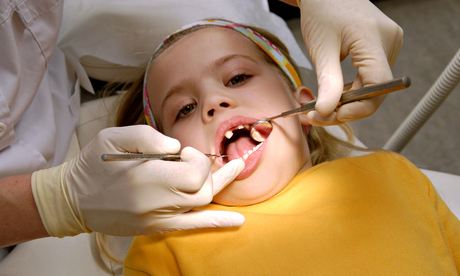Dozens of hospital stroke units should be shut and the service reorganised into fewer centres of excellence in order to improve care, the charity representing stroke survivors has insisted.
Centralising stroke treatment at a much smaller number of hospitals will increase patients’ chances of survival and reduce their risk of long-term disability, the Stroke Association says.
Juliet Bouverie, the charity’s chief executive, accused hospitals of risking lives by retaining stroke units when medical evidence suggests they should be moved. While reconfiguration is controversial, patients and their families generally understand that travelling longer distances to get a higher standard of care and reduce the risk of dying is worthwhile, she insisted.
“At the moment there are 126 hospitals in England which routinely admit stroke patients. That number needs to be reduced to somewhere between 75 and 100. But progress on that is very variable across the country and so unnecessary costs are being incurred and unnecessary mortality is happening,” she said.
She urged hospital and NHS chiefs to learn lessons from studies showing that scores of lives are being saved every year by the reorganisation of stroke units in the capital in the 2000s. “Previously there were more than 20 hospitals providing acute care in London and there was strong evidence that actually reducing the number of acute stroke units and creating a hub and spoke model [of bigger hospitals supporting smaller ones] on stroke would not only save lives but it would also save the NHS money.
“So they reduced the number of acute stroke units from 20 down to eight and the evidence shows that each year more than 100 patients extra are saved as a consequence. That’s now been replicated in Manchester, with equivalent numbers of lives saved.”
Tony Rudd, the national clinical director for stroke at NHS England, says: “The changes to stroke services in London have saved lives, proving it is right to concentrate expertise in selected centres. One advantage of the local planning arrangements is they can identify where there are opportunities to provide this more focused care for stroke patients.”
Centres of excellence would offer better care by having larger numbers of patients and would tackle the shortage of specialist doctors and nurses by concentrating them in fewer places. They could then offer patients clot-busting drugs and, potentially, 35 to 50 could undergo a new surgical procedure called mechanical thrombectomy, in which even large blood clots in the brain can be enclosed in a stent. Many more hospitals than the current handful should be offering the £7,000-a-time “game-changer” operation, said Bouverie.
Hospitals’ self-interest is “stalling” what should be an NHS-wide drive to improve stroke care, she claimed. “Too many hospitals are protecting their own interests and not doing what is in patients’ best interests. No hospital wants to give up some of those life-saving treatments, but it’s not in patients’ interests for these smaller hospitals to be delivering services.”
Too many of the sustainability and transformation plans drawn up by NHS leaders in 44 areas of England do not include clear ways of reorganising stroke care, despite evidence that fewer units reduce the risk of death and disability.
Hyper acute stroke units usually administer life-saving treatment for three days and then transfer patients to a stroke unit, with patients then moving to a rehabilitation unit or going home. Centres of excellence would help overcome the postcode lottery that means that 82% of stroke patients treated at Ipswich hospital, for example, receive clot-busting drugs within the recommended four hours but only 15% of those attending Wexham Park hospital in Slough.
Bouverie blamed the NHS for neglecting survivors after their discharge from hospital: “More than 46% of patients told us in our most recent survey that when they’re discharged from hospital they feel isolated and abandoned. They say that physiotherapy is not adequate and they’re not given access to the right psychological support. People are not getting access to speech and language therapy in a timely manner,” she added.
“Many stroke survivors have a physical disability, depression or psychological needs, suffer chronic fatigue or have aphasia, where they cannot speak. You’ve got stroke survivors at home with serious disability, often still in wheelchairs, unable to communicate, suffering the damaging psychological effects of what is a life-changing condition and not being given the proper support. ”
She criticised NHS bosses and ministers for refusing to draw up a strategy to reduce the UK-wide toll of 40,000 deaths caused by the 100,000 strokes that occur every year, despite the government’s pledge to reduce premature deaths. Stroke campaigners feel “ignored” because NHS England chief executive Simon Stevens is concentrating on improving cancer, mental health, maternity care and dementia services rather than prioritising Britain’s fourth biggest killer.
Fewer but better clinics ‘will save more stroke victims’
